Iranian film dances with danger
“If you are worried that filmmakers take few risks any more, make the time to pop into the Iranian Film Festival Australia, which has returned after not being possible in 2022 amid government crackdowns in Iran,” writes Stephen Romei.
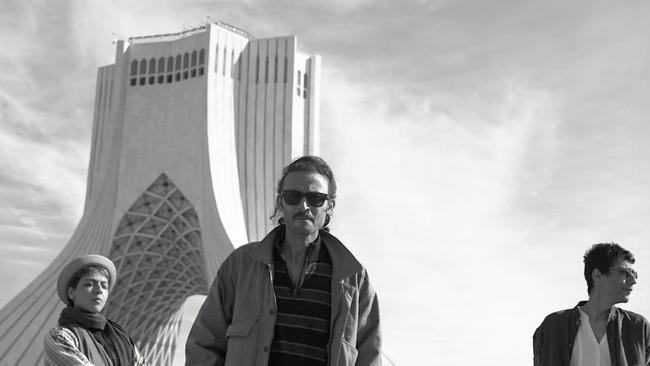
Dark Matter (MA15+)
Farsi language with English subtitles
In cinemas as part of the Iranian Film Festival Australia
★★★½
If you are worried that filmmakers take few risks any more, make the time to pop into the Iranian Film Festival Australia, which has returned after not being possible in 2022 amid government crackdowns in Iran.
Dark Matter, directed, written and filmed by 37-year-old Iranian Auteur Karim Lakzadeh, was made in his homeland but not shown to anyone, including critics, until the July 2023 Karlovy Vary International Film Festival in the Czech Republic.
The reason for keeping the film, which flouts Iran’s hijab rule, under wraps was that the actors were still living in Iran. “It could have put them in danger until they left the country,’’ Lakzadeh told the Hollywood Reporter. “So we were just being cautious.”
The 2022 death in police custody of 22-year-old Mahsa Amini, arrested for violating the hijab rule, which requires women to cover their heads on meeting any man who is not a blood relative, is the real-world backdrop to this movie.
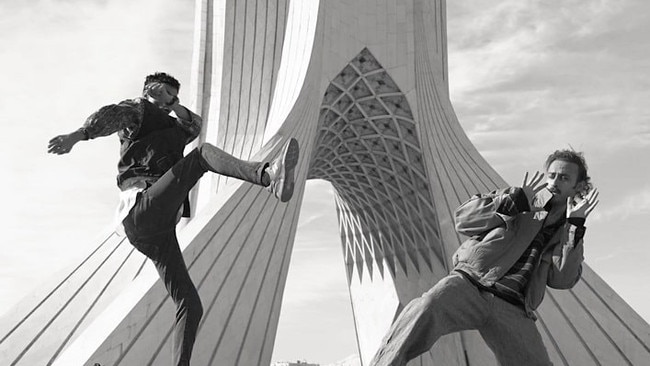
Shot in black-and-white, it is a film within a film. It opens with two wannabe actors, Dani (Keivan Parmar) and Shaadab (Mahdis Mahdiyar), auditioning for minor roles in a movie.
This audition on a film set is the only time Shaadab wears a hijab. She is forced to do so by the male filmmakers. Off set, she is hijab-free and drinks, smokes and dances.
The director’s cinematic inspiration is the French New Wave of the 50s and 60s. Mahdiyar does resemble Jean Seberg in Jean-Luc Godard’s Breathless (1960) and there is a smoking scene that could be taken from that French classic.
The no-hijab rebellion is the starting point of this satirical film. It also pokes fun, in a way that is relevant in any country, at actors, directors, films and filmmaking.
When Dani and Shaadab fail to land the roles, they decide to make their own film and rope in a wannabe director, Zia (Iman Sayyadborhani), who agrees, providing the movie will make money.
The trouble is, you need money to get money, and this takes the trio into a world that may make a great film, as long as they survive. It includes the tangible dark matter of the multi-meaning title: a valuable chunk of meteorite.
The action switches between the trio making the film and imagined scenes from the film they are making. There are times when the line between the two is deliberately and amusingly blurred.
When Dani, in role or not, laments, “What happened to cinema? What happened to love?”, Zia pulls out a gun and pretend shoots him in the head.
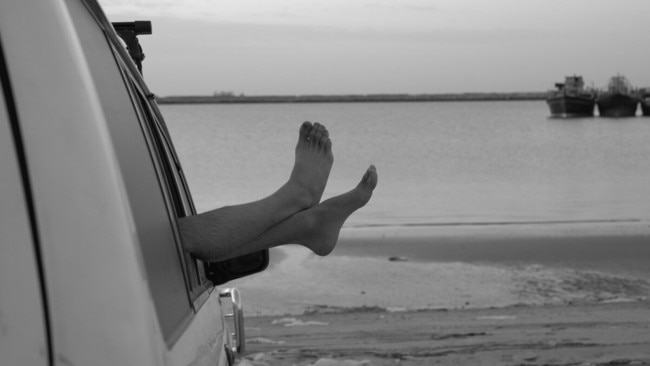
The performances are strong and the cinematography, especially of scenes set in the mountains and along the seafront, is striking.
This 83-minute movie takes the hijab rule as the starting point for an exploration of the Iranian state, and this is where the cast and crew move into dangerous waters.
“The reality of Iranian society,’’ the director said in the Hollywood Reporter interview, “has no place in films.” It does in Dark Matter due to the director’s “internal revolution” to not “continue making fake pictures”.


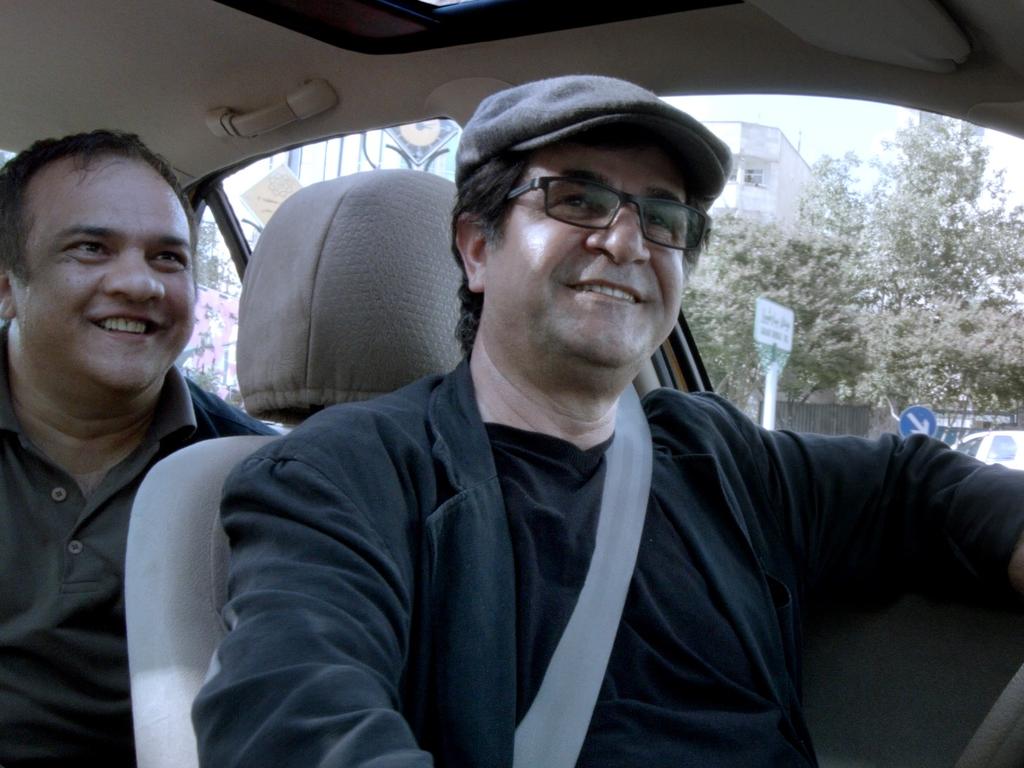
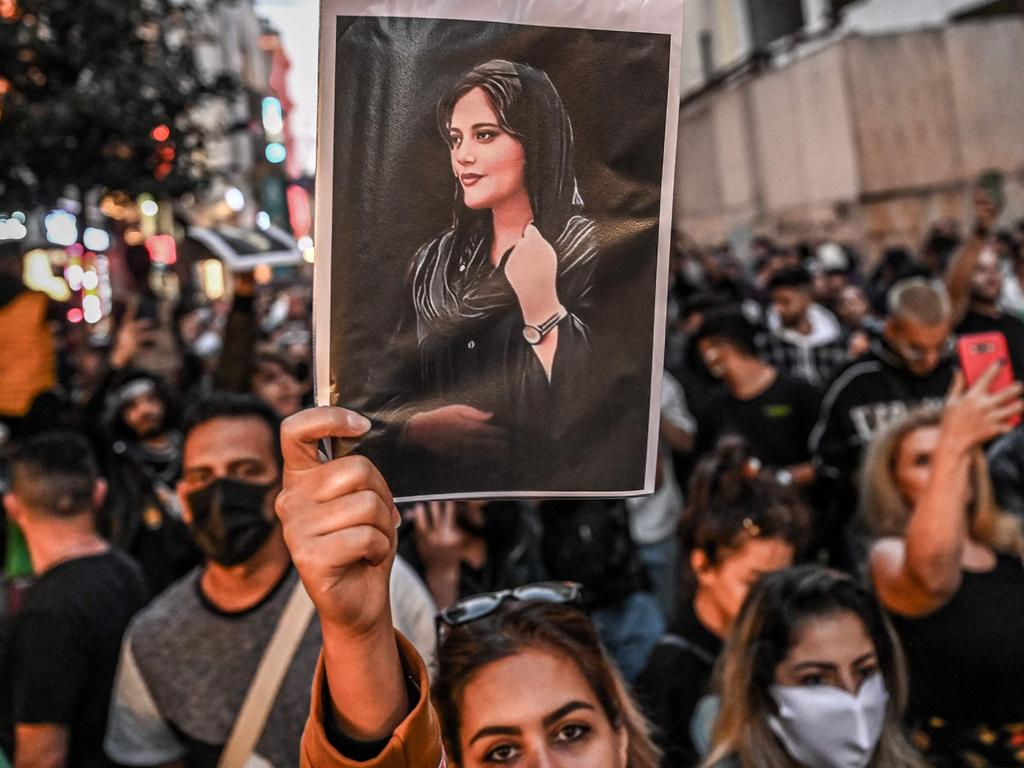


To join the conversation, please log in. Don't have an account? Register
Join the conversation, you are commenting as Logout